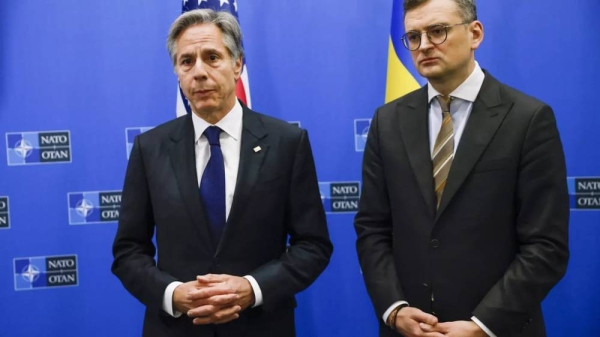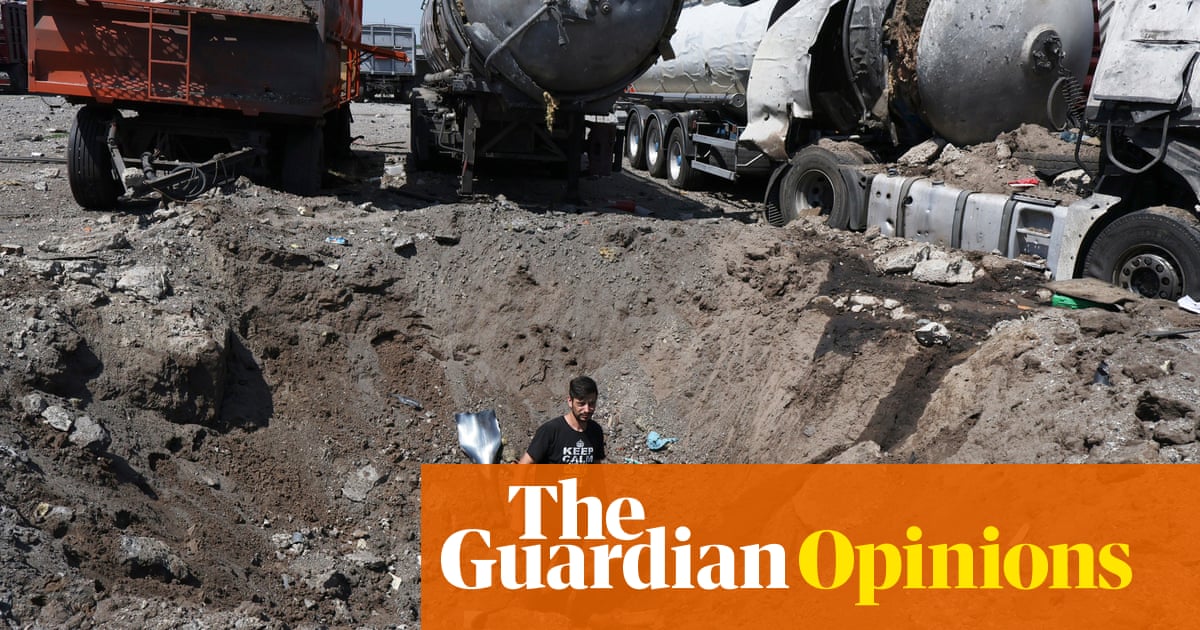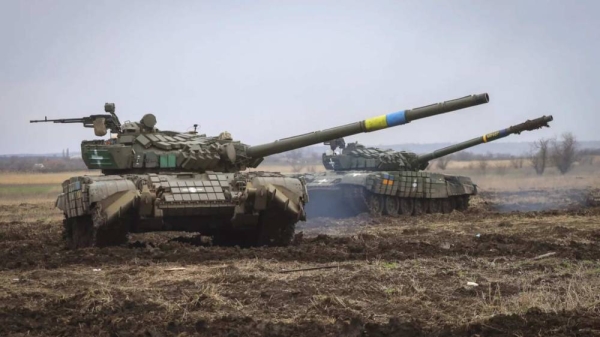
As Ukraine continues to be ground zero in the Trump impeachment drama in the US, the country has been in the news for all the wrong reasons. With all the focus on the political drama, most have forgotten that there is a war going on there.
US assistance for Ukraine has enjoyed bipartisan support for years. Since Russia’s invasion in 2014, and the subsequent occupation of Crimea, Democrats and Republicans have been united in showing their condemnation for the Kremlin and their support for Ukraine. The US has invested billions of dollars in international assistance, loans, and military hardware to the Ukrainians. But as the impeachment saga unfolds, this bipartisan support is at risk.
Until now, US politicians on both sides shared an understanding that the situation in Ukraine had geopolitical ramifications for the transatlantic community, which is why the war there was a major concern for policymakers.
Ukraine is not a member of NATO, and so it does not enjoy the alliance’s security guarantee, but it was Kiev’s desire to join institutions such as NATO and the EU that persuaded Russia to invade in 2014. Ukraine represents the idea that countries in Europe should be free to choose how and by whom they are governed, and which international organizations and alliances they wish to join. No outside country, in this case Russia, should have a veto. If Russia gets its way in Ukraine today, other hopeful countries will be blocked from joining Western organizations in the future.
But with the political drama unfolding in the US, there is a serious concern that Ukraine is becoming a partisan issue. For example, to distract from the Trump impeachment hearing, some are suggesting that Ukraine meddled in the 2016 US presidential election. There is little doubt that conspiracy theories such as this tarnish the image of Ukraine among some policymakers in the US.
US assistance for Ukraine has enjoyed bipartisan support for years... with billions of dollars in international assistance, loans, and military hardware to the Ukrainians. But as the impeachment saga unfolds, this bipartisan support is at risk.
Luke Coffey
The accusation has been debunked, most recently by the third-in-charge at the State Department, the undersecretary for political affairs David Hale. Nevertheless, commentators are already speculating on how Ukrainian Americans could play a role in the 2020 presidential election. It was pointed out in one recent article that the swing state of Pennsylvania has more than 100,000 Ukrainian Americans living there. This was a state that President Trump won by only 45,000 votes in 2016, and a state he has to win again to be re-elected in 2020.
Ukraine needs the support of the West right now. It would greatly undermine the interests of the US, Ukraine, and Europe if the issue of American support to Ukraine becomes a political issue.
The new Ukrainian president, Volodymyr Zelensky, has an overwhelming mandate from his people to bring about major reforms of the economy and governance of Ukraine. President Zelensky has also campaigned on bringing the war with Russia to an acceptable, respectable, and peaceful end.
To this end, there was a meeting last week between Germany, France, Russia, and Ukraine, as part of the so-called Normandy format, for the first time since 2016. Expectations for the meeting were low, and little was actually achieved, but there was a renewed commitment to a cease-fire and for further prisoner swaps.
But there is little reason to be optimistic. There have already been two previous cease-fire attempts in eastern Ukraine, neither of which has held; not surprisingly, when one considers that Russia is still in violation of the 2008 cease-fire agreement in Georgia, and that Russia has violated the cease-fire agreement as part of the Astana process in Syria. So there is no reason to suspect that Russia will honor any new cease-fire agreement with President Zelensky.
Sadly, Ukraine has a long way to go before it will find a lasting peace. Since 2014, 13,000 Ukrainians have been killed. Many thousands more have been wounded. More than 1.4 million Ukrainians have been internally displaced. Moscow still illegally occupies Crimea, which before the war accounted for more than 5 percent of Ukraine’s GDP. Russia still arms, supports, and trains separatists in eastern Ukraine with no end in sight to the fighting. Moscow’s land grab in Ukraine was the first time since 1945 that military force was used to re-draw the map of Europe.
This is what we should focus on when it comes to Ukraine; not partisan sniping and political infighting in the US Congress, but the real human impact of Russia’s invasion and occupation.
Ukraine is in the midst of a national struggle that will determine its future geopolitical orientation — the West or Moscow. The outcome of this struggle will have long-term implications for the transatlantic community and the notion of national sovereignty.
While the future success of Ukraine will rest in large part on the shoulders of Ukrainians themselves, US support is essential to counteract Russian aggression and support reform. So far, the Trump administration has done a lot to help Ukraine. But instead of allowing Ukraine to become sucked into the impeachment quagmire, US policymakers should seize the opportunity to move quickly and robustly to reaffirm American commitment and support for the people of Ukraine.
In turn, this will make both America and its allies safer in the long run.
Luke Coffey is Director of the Douglas and Sarah Allison Center for Foreign Policy at the Heritage Foundation. Twitter: @LukeDCoffey.
Disclaimer: Views expressed by writers in this section are their own and do not necessarily reflect Arab News" point-of-view












